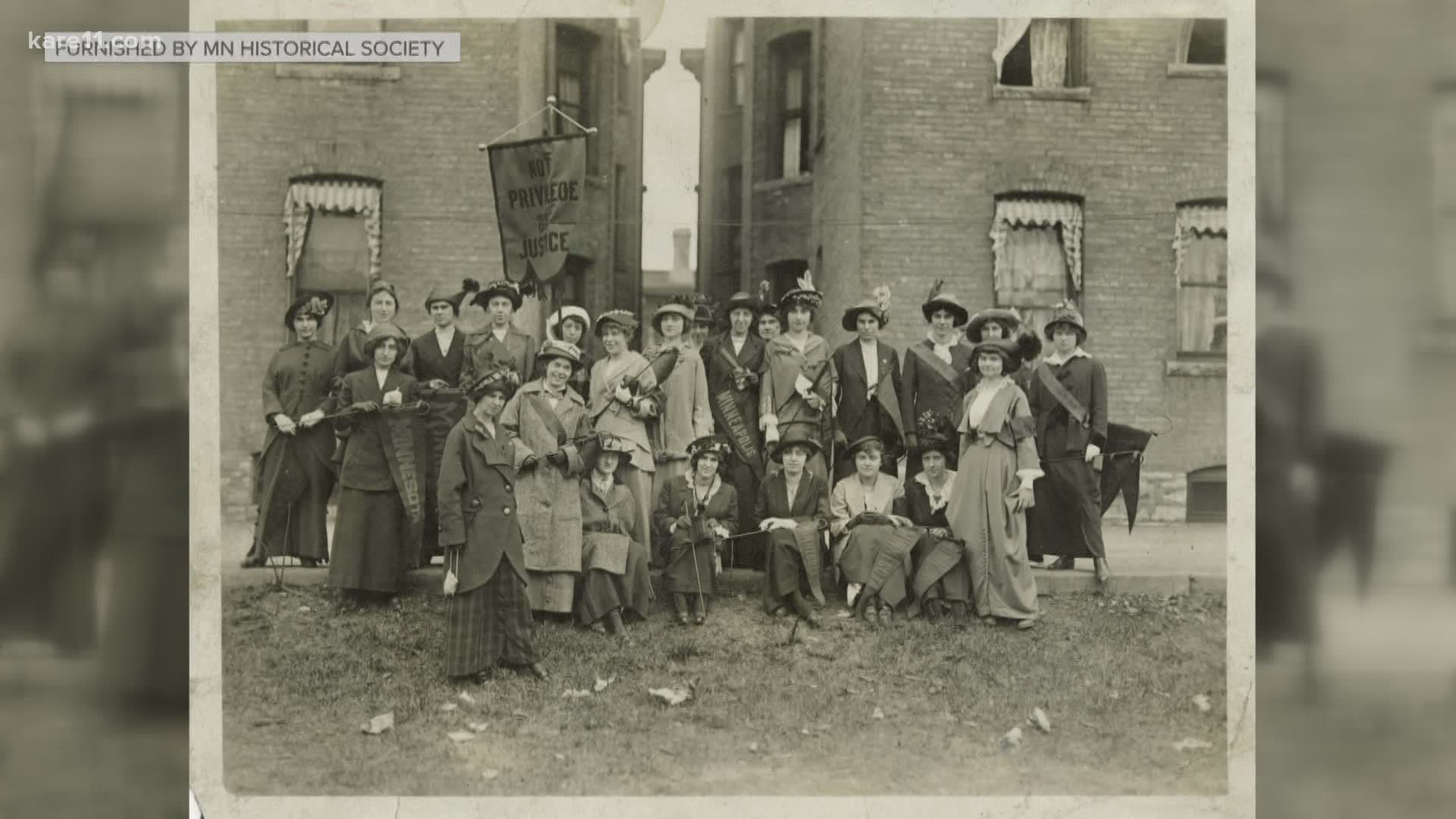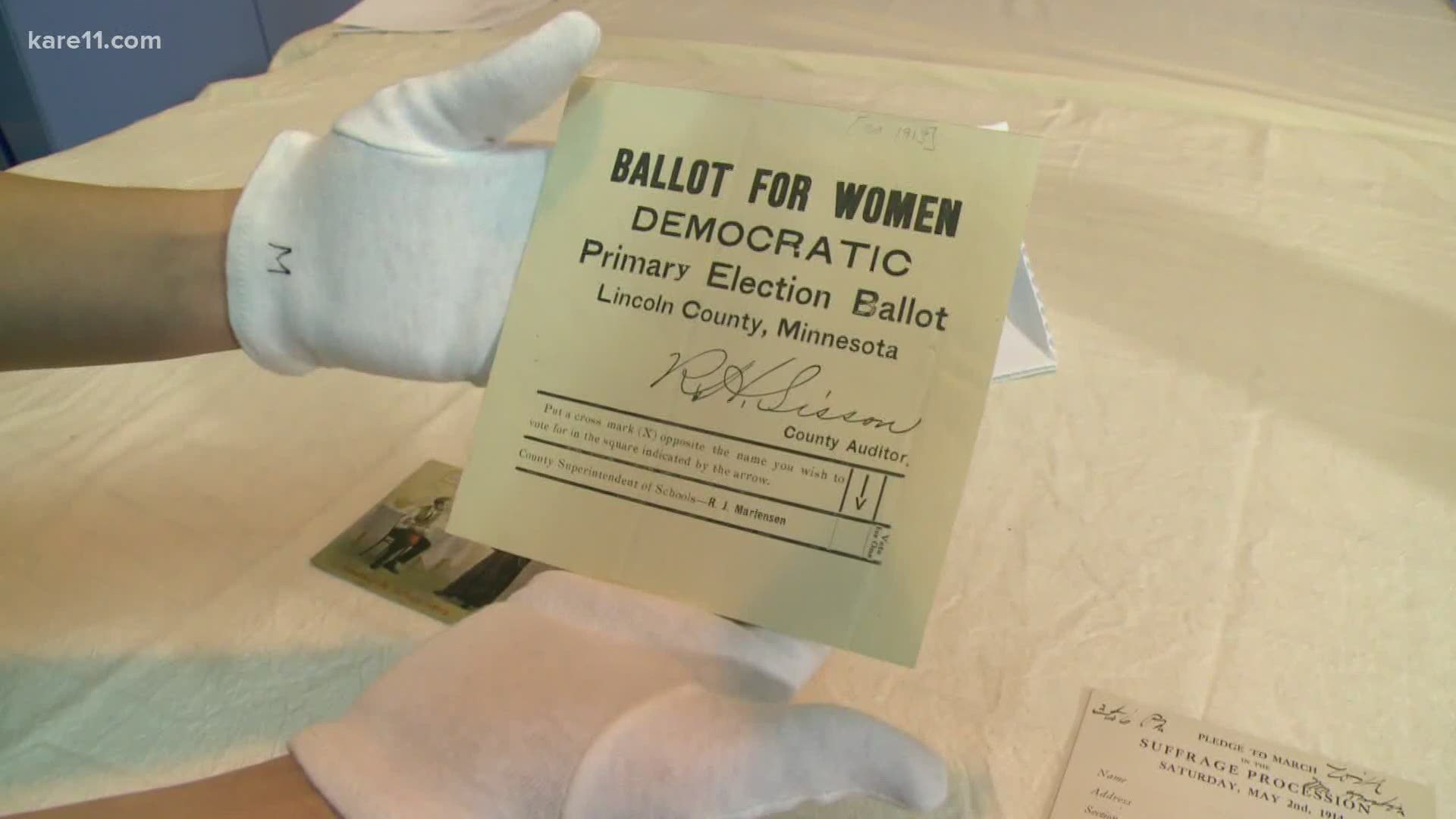MINNEAPOLIS — During the month of August, celebrations are taking place in honor of the 100th anniversary of women's suffrage in the United States.
On August 18, 1920, Tennessee became the 36th state to ratify the 19th Amendment, passing the three-fourths threshold needed for the amendment to become law. Eight days later on August 26, it was signed into law—granting women the right to vote.
"I wish I had the strength to go out of my comfort zone and to put a lot of my securities on the line to achieve what's so important to me and so important to the people who are going to follow me," said Jane Baron of Minneapolis.
Judi Kelly, who spends five months out of the year in Minneapolis, added, "Things evolve and it takes time. You have to build consensus, you have to change minds and you have to believe in your cause. The women's suffrage movement did all of that and look...100 years later, we're voting in mass."
The Seneca Falls Convention, held in 1848, was the first women's rights convention.
"You realize the 19th Amendment didn't happen until 1920 and that's 72 years. So you're like... well what would we do today if we knew it was going to take 72 years to come to fruition?" said Michelle Witte, executive director of the League of Women Voters Minnesota.
Many Minnesota women played a role in that victory and beyond.
Clara Ueland was the president of the Minnesota Woman Suffrage Association when the 19th Amendment passed. She was also the first president of the Minnesota League of Women Voters. In 1914, Ueland organized a suffrage parade in Minneapolis that attracted about 2,000 marchers.
Nellie Griswold Francis, of St. Paul, was an African-American suffragist who led the effort to enact a state anti-lynching statute in 1921.
"We really recognize that the 19th Amendment expanded radically women's rights to vote but... we know that women of color really could not access those rights until the Voting Rights Act of 1965. Also Native American women weren't citizens until 1924," Witte explained.
Marsha Henry of Minneapolis said, "When we think about women's rights... and we think about African Americans and where we've come from in terms of being able to vote... all of the blood that's been shed, all of the work that's been done... Yeah, make sure that you go out there and vote."
The Minnesota Historical Society (MNHS) is marking the event's 100th anniversary with an online exhibit, "Votes for Women."
The exhibit will premiere on MNHS's website Wednesday, Aug. 26.


